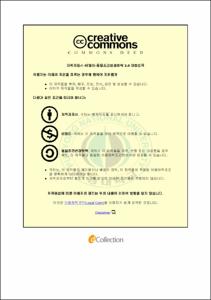서번트 리더십, 직무만족 및 이직의도 간의 관계연구-사회적 기업을 중심으로
- Alternative Title
- A Study on the Relationship of Servant Leadership, Job Satisfaction and Turnover Intention in Social Enterprise
- Abstract
- Recent polarization of the masses has been attributed to; wealth, aging, regional disparities and social problems. To overcome, new alternatives to coexistence with capitalistic spirit has increased interest in social enterprise. In today's rapidly changing business environment, managers must be able to respond flexibly to the demand by following the instructions to amend the existing traditional leadership to the servant leadership. There has, however, been much lively discussion on servant leadership, but a study of social enterprises is insufficient. Managers of social enterprises contend that to grow businesses and internal customers, a study of the relationship of job satisfaction should be a topic regarded as meaningful.
A study was performed of 217 employees of social enterprises. The result of the study is shown, below.
First, the servant leadership is to look at the impact on job satisfaction for altruistic calling, emotional healing, wisdom impact on job satisfaction in a relationship, is a significant positive (+) influence.
Second, the servant leadership is looking at the impact of altruistic calling, emotional healing impact on the relationship between employee turnover intention, significantly negative (-) impact.
Third, social enterprises have on job satisfaction employee on relationship between employee turnover intention significantly negative (-) impact.
Finally, job satisfaction is looking at servant leadership's altruistic calling, emotional healing and turnover intention for fully mediated relationship between roles. Thus, altruistic calling, emotional healing, higher job satisfaction and lower turnover intention.
- Issued Date
- 2014
- Awarded Date
- 2014. 8
- Type
- Dissertation
- Publisher
- 부경대학교
- Alternative Author(s)
- 송해용
- Affiliation
- 대학원
- Department
- 대학원 경영학과
- Advisor
- 이재정
- Table Of Contents
- 제Ⅰ장 서론 1
제1절 연구배경 1
제2절 연구목적 3
제3절 연구구성 4
제Ⅱ장 이론적 고찰 5
제1절 사회적 기업 5
가. 사회적 기업의 등장배경 5
나. 사회적 기업의 개념 5
다. 사회적 기업의 사례 7
라. 사회적 기업과 리더십에 관한 연구 9
제2절 서번트 리더십 11
가. 서번트 리더십의 개념 11
나. 서번트 리더십의 하위요인 13
다. 서번트 리더십과 직무만족에 관한 연구 15
라. 서번트 리더십과 이직의도에 관한 연구 16
제3절 직무만족 17
가. 직무만족의 개념 17
나. 직무만족의 영향요인 18
제4절 이직의도 20
가. 이직의도의 개념 20
나. 이직의도의 영향요인 21
다. 직무만족과 이직의도에 관한 연구 23
제 Ⅲ 장 연구방법 24
제1절 연구모형 및 가설검증 24
가. 연구모형 24
나. 가설검증 25
제2절 조사도구 27
가. 변수의 조작적 정의 27
나. 설문지 구성 29
제3절 자료분석 및 분석방법 30
가. 자료분석 30
나. 분석방법 30
제 Ⅳ 장 연구결과 32
제1절 조사대상의 일반적 특성 32
제2절 변수의 타당성분석 34
제3절 변수의 신뢰성검증 36
제4절 상관관계분석 37
제5절 가설검증 39
제 Ⅴ 장 결론 47
제1절 연구결과의 요약 47
제2절 연구의 시사점 49
제3절 연구의 한계점 및 향후 연구 50
참고문헌 51
설문지 58
Abstract 63
- Degree
- Master
- Files in This Item:
-
-
Download
 서번트 리더십, 직무만족 및 이직의도 간의 관계연구-사회적 기업을 중심으로.pdf
기타 데이터 / 945.25 kB / Adobe PDF
서번트 리더십, 직무만족 및 이직의도 간의 관계연구-사회적 기업을 중심으로.pdf
기타 데이터 / 945.25 kB / Adobe PDF
-
Items in Repository are protected by copyright, with all rights reserved, unless otherwise indicated.